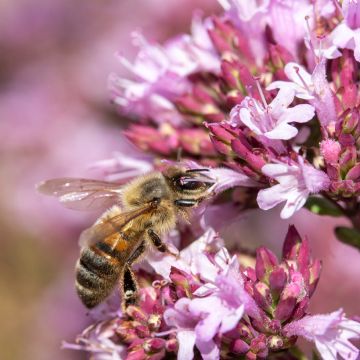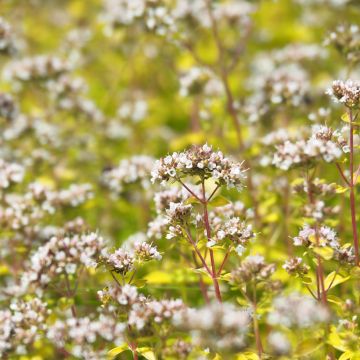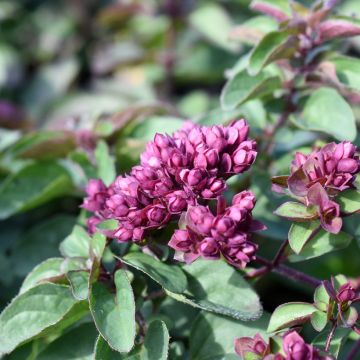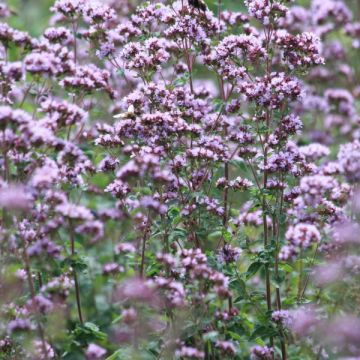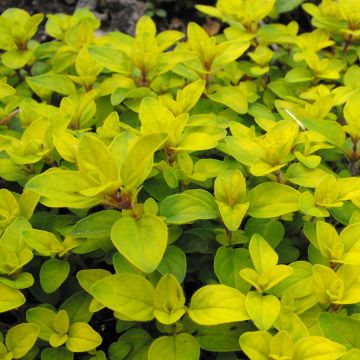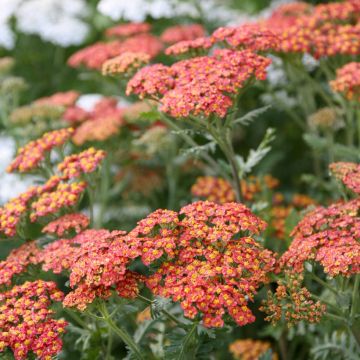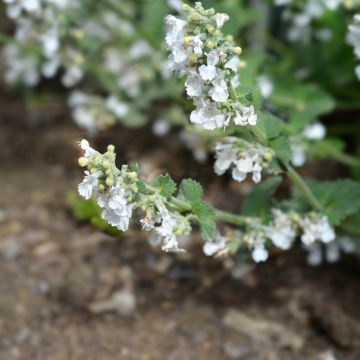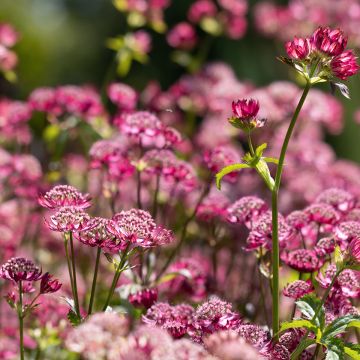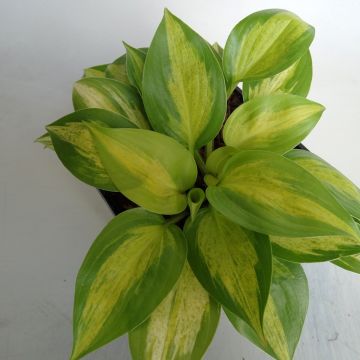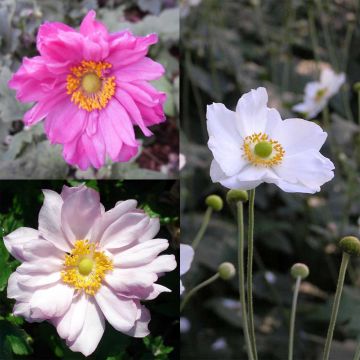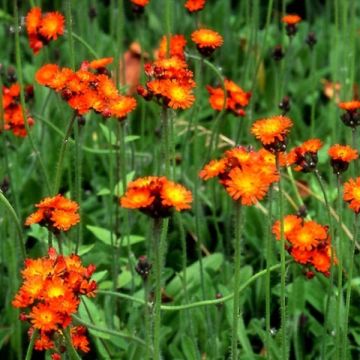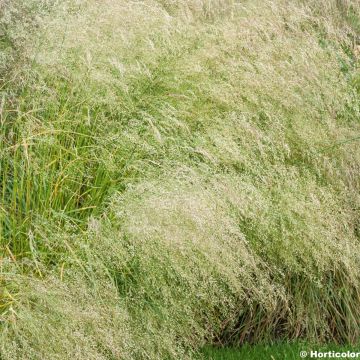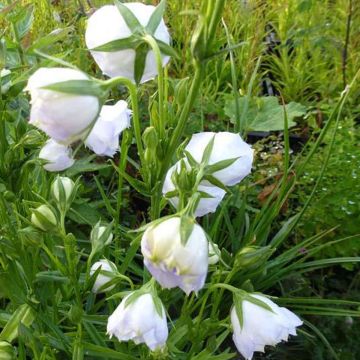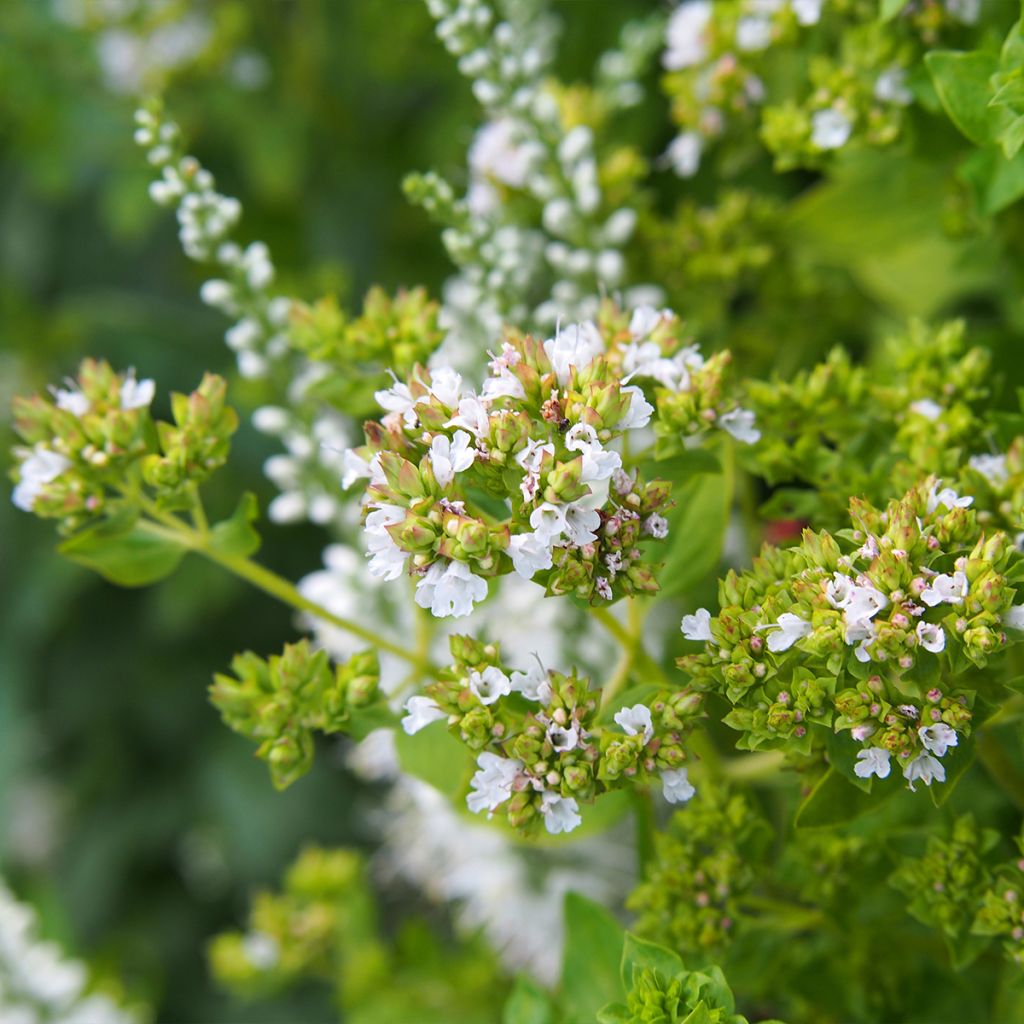

Origanum vulgare Thumbles Variety - Origan commun doré
Origanum vulgare Thumbles Variety - Oregano
Origanum vulgare Thumbles Variety
Oregano, Wild Marjoram
Very satisfied
Ben, 25/10/2024
Special offer!
Receive a €20 voucher for any order over €90 (excluding delivery costs, credit notes, and plastic-free options)!
1- Add your favorite plants to your cart.
2- Once you have reached €90, confirm your order (you can even choose the delivery date!).
3- As soon as your order is shipped, you will receive an email containing your voucher code, valid for 3 months (90 days).
Your voucher is unique and can only be used once, for any order with a minimum value of €20, excluding delivery costs.
Can be combined with other current offers, non-divisible and non-refundable.
Home or relay delivery (depending on size and destination)
Schedule delivery date,
and select date in basket
This plant carries a 12 months recovery warranty
More information
We guarantee the quality of our plants for a full growing cycle, and will replace at our expense any plant that fails to recover under normal climatic and planting conditions.

Would this plant suit my garden?
Set up your Plantfit profile →
Description
Origanum vulgare 'Thumbles Variety' is a cultivar of common oregano that stands out for its very bright golden spring foliage. It is a perennial aromatic and culinary plant that quickly forms a wide and dense cushion, providing good coverage. It flowers for a good part of the summer, in clusters of small honey-scented flowers that are very pale pink, almost white. It is an excellent rockery or dry ground plant, and can also be grown in pots on a balcony.
Origanum vulgare 'Thumbles Variety' is believed to be native to France. The wild species, better known as Common Oregano or Marjoram, is a fast-growing bushy perennial. Belonging to the Lamiaceae family, it is native to mountainous regions of the Mediterranean Basin and temperate Asia. As a culinary herb, Oregano evokes Mediterranean cuisine and the scents of the scrubland. The 'Thumbles Variety' cultivar develops into a compact clump with a woody stump, reaching about thirty centimetres in height and 40 to 50cm (16 to 20in) in width. Its vegetation forms a wide and dense cushion. Its small leaves are more rounded than those of other oregano varieties. They persist to a greater or lesser extent in winter, depending on the climate. Their colour is a bright yellow-green in spring, turning green in summer. From July to September, this Golden Oregano exhibits, on very thin stems, compound panicles of small tubular flowers, 2 to 4mm (0in) long, almost white, surrounded by green leafy bracts tinged with pink. As a honey plant, this Oregano attracts a large number of pollinators and bees.
The leaves of Origanum vulgare 'Thumbles Variety' are used in the preparation of many Mediterranean dishes. It is particularly renowned in Italy for enhancing pasta, tomato sauces, and pizzas. Oregano stems are mainly harvested before flowering and then dried in the shade before being stored in an airtight jar. The flavour of the leaves can vary considerably depending on the cultivar, climate, and soil type.
An excellent robust and hardy ground cover, its golden spring foliage will illuminate garden beds or the surroundings of the vegetable garden. In the hottest regions, it is preferable to choose a semi-shaded location during the hottest hours of the day. This 'Thumbles Variety' Oregano is perfectly suited for bordering flower beds and rockeries, but it will also be remarkable for embellishing a wall or slope. It can also be planted in a pot, container, or planter on a terrace or balcony. Oregano is ideal within a simple square, in a vegetable garden, or in an herb garden. It will be a fabulous companion plant for perennial plants with blue flowers, lavenders, and shrubby salvias.
Oregano is not only a renowned culinary plant but also a traditional medicinal plant. Indeed, it is reputed to have digestive, antispasmodic, tonic, antiseptic properties, etc. In ancient Egypt, Oregano was used in preparations for embalming the dead.
Report an error about the product description
Origanum vulgare Thumbles Variety - Oregano in pictures
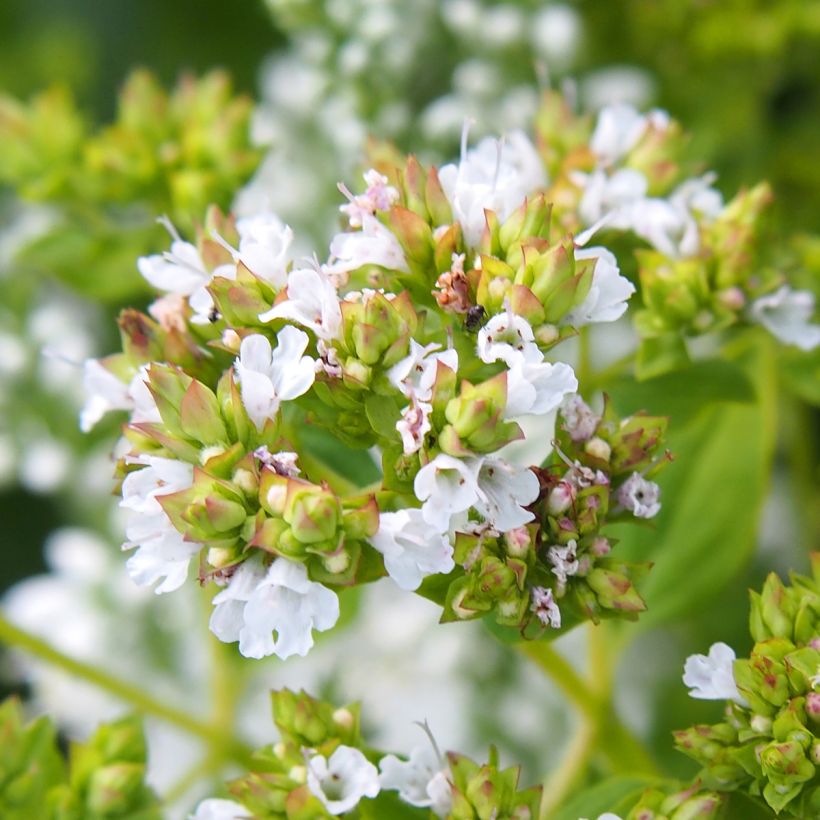

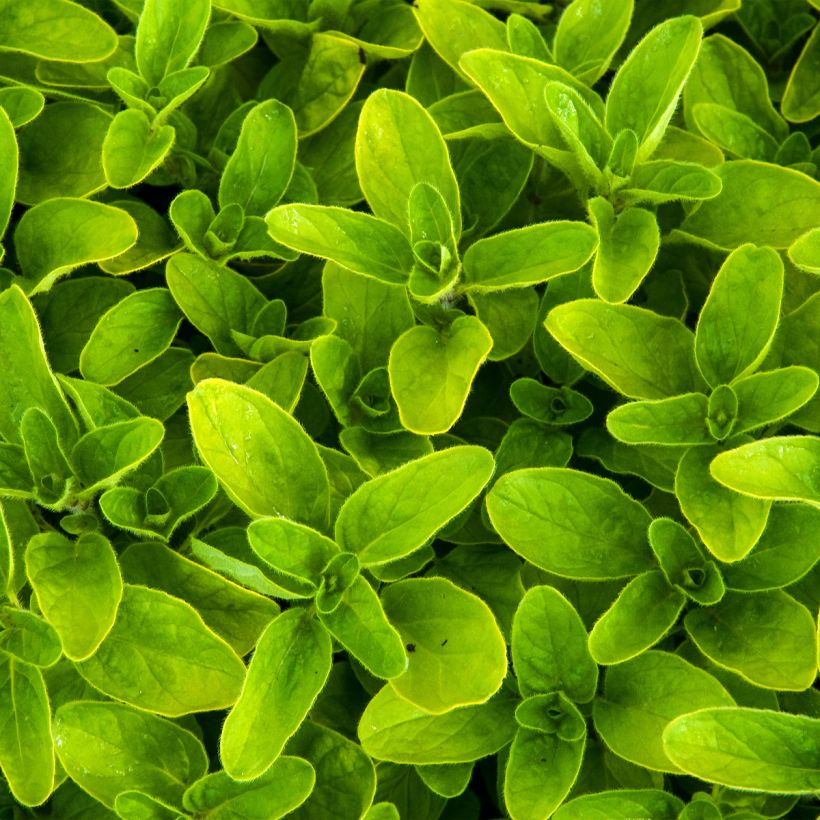

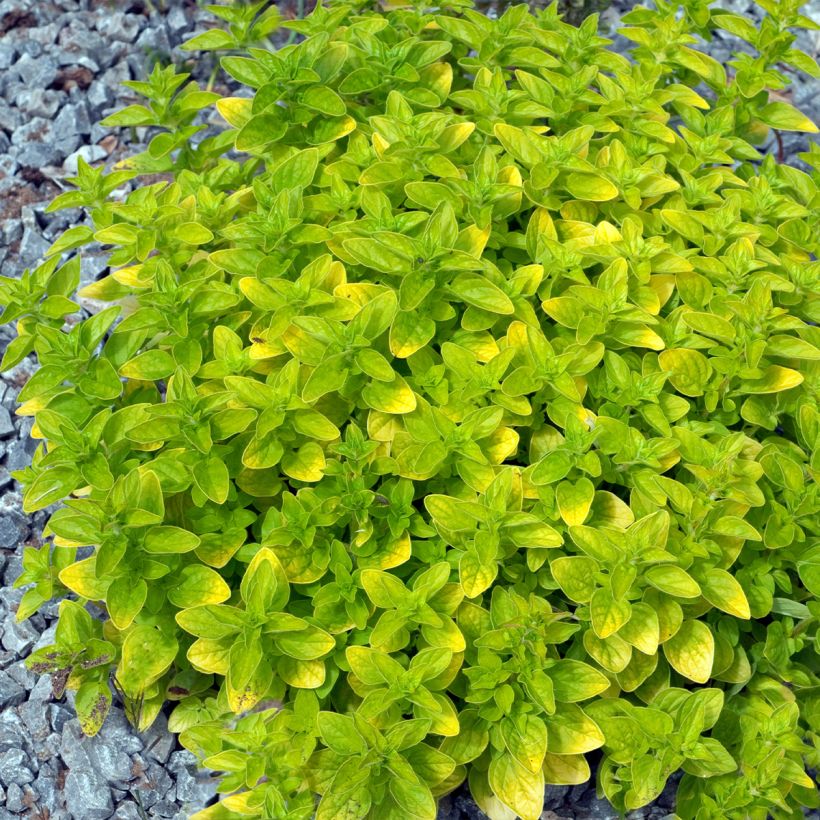

Flowering
Foliage
Plant habit
Botanical data
Origanum
vulgare
Thumbles Variety
Lamiacées
Oregano, Wild Marjoram
Mediterranean
Other Oregano
View all →Planting and care
Origanum vulgare 'Thumbles Variety' is a very easy plant, quite hardy, tolerating negative temperatures down to at least -15°C (5°F). It appreciates a sunny or semi-shaded exposure, preferably in a partially shaded location, so that its golden foliage is as bright as possible. This golden oregano, tolerant of drought, prefers a soil that is slightly to moderately fertile, sandy to rocky, very well-draining, alkaline to neutral, and rather dry. In poorly drained and overly moist soil, its roots will tend to rot. Dreading winter humidity above all else, it is therefore advisable, in regions with humid winters, to ensure that its neck remains dry, thanks to the addition of coarse sand and gravel, straw, and dry leaves. Planting should be done in spring or autumn. Multiplication is done by dividing the clumps in spring or autumn.
Planting period
Intended location
Care
-
, onOrder confirmed
Reply from on Promesse de fleurs
Similar products
Haven't found what you were looking for?
Hardiness is the lowest winter temperature a plant can endure without suffering serious damage or even dying. However, hardiness is affected by location (a sheltered area, such as a patio), protection (winter cover) and soil type (hardiness is improved by well-drained soil).

Photo Sharing Terms & Conditions
In order to encourage gardeners to interact and share their experiences, Promesse de fleurs offers various media enabling content to be uploaded onto its Site - in particular via the ‘Photo sharing’ module.
The User agrees to refrain from:
- Posting any content that is illegal, prejudicial, insulting, racist, inciteful to hatred, revisionist, contrary to public decency, that infringes on privacy or on the privacy rights of third parties, in particular the publicity rights of persons and goods, intellectual property rights, or the right to privacy.
- Submitting content on behalf of a third party;
- Impersonate the identity of a third party and/or publish any personal information about a third party;
In general, the User undertakes to refrain from any unethical behaviour.
All Content (in particular text, comments, files, images, photos, videos, creative works, etc.), which may be subject to property or intellectual property rights, image or other private rights, shall remain the property of the User, subject to the limited rights granted by the terms of the licence granted by Promesse de fleurs as stated below. Users are at liberty to publish or not to publish such Content on the Site, notably via the ‘Photo Sharing’ facility, and accept that this Content shall be made public and freely accessible, notably on the Internet.
Users further acknowledge, undertake to have ,and guarantee that they hold all necessary rights and permissions to publish such material on the Site, in particular with regard to the legislation in force pertaining to any privacy, property, intellectual property, image, or contractual rights, or rights of any other nature. By publishing such Content on the Site, Users acknowledge accepting full liability as publishers of the Content within the meaning of the law, and grant Promesse de fleurs, free of charge, an inclusive, worldwide licence for the said Content for the entire duration of its publication, including all reproduction, representation, up/downloading, displaying, performing, transmission, and storage rights.
Users also grant permission for their name to be linked to the Content and accept that this link may not always be made available.
By engaging in posting material, Users consent to their Content becoming automatically accessible on the Internet, in particular on other sites and/or blogs and/or web pages of the Promesse de fleurs site, including in particular social pages and the Promesse de fleurs catalogue.
Users may secure the removal of entrusted content free of charge by issuing a simple request via our contact form.
The flowering period indicated on our website applies to countries and regions located in USDA zone 8 (France, the United Kingdom, Ireland, the Netherlands, etc.)
It will vary according to where you live:
- In zones 9 to 10 (Italy, Spain, Greece, etc.), flowering will occur about 2 to 4 weeks earlier.
- In zones 6 to 7 (Germany, Poland, Slovenia, and lower mountainous regions), flowering will be delayed by 2 to 3 weeks.
- In zone 5 (Central Europe, Scandinavia), blooming will be delayed by 3 to 5 weeks.
In temperate climates, pruning of spring-flowering shrubs (forsythia, spireas, etc.) should be done just after flowering.
Pruning of summer-flowering shrubs (Indian Lilac, Perovskia, etc.) can be done in winter or spring.
In cold regions as well as with frost-sensitive plants, avoid pruning too early when severe frosts may still occur.
The planting period indicated on our website applies to countries and regions located in USDA zone 8 (France, United Kingdom, Ireland, Netherlands).
It will vary according to where you live:
- In Mediterranean zones (Marseille, Madrid, Milan, etc.), autumn and winter are the best planting periods.
- In continental zones (Strasbourg, Munich, Vienna, etc.), delay planting by 2 to 3 weeks in spring and bring it forward by 2 to 4 weeks in autumn.
- In mountainous regions (the Alps, Pyrenees, Carpathians, etc.), it is best to plant in late spring (May-June) or late summer (August-September).
The harvesting period indicated on our website applies to countries and regions in USDA zone 8 (France, England, Ireland, the Netherlands).
In colder areas (Scandinavia, Poland, Austria...) fruit and vegetable harvests are likely to be delayed by 3-4 weeks.
In warmer areas (Italy, Spain, Greece, etc.), harvesting will probably take place earlier, depending on weather conditions.
The sowing periods indicated on our website apply to countries and regions within USDA Zone 8 (France, UK, Ireland, Netherlands).
In colder areas (Scandinavia, Poland, Austria...), delay any outdoor sowing by 3-4 weeks, or sow under glass.
In warmer climes (Italy, Spain, Greece, etc.), bring outdoor sowing forward by a few weeks.






























